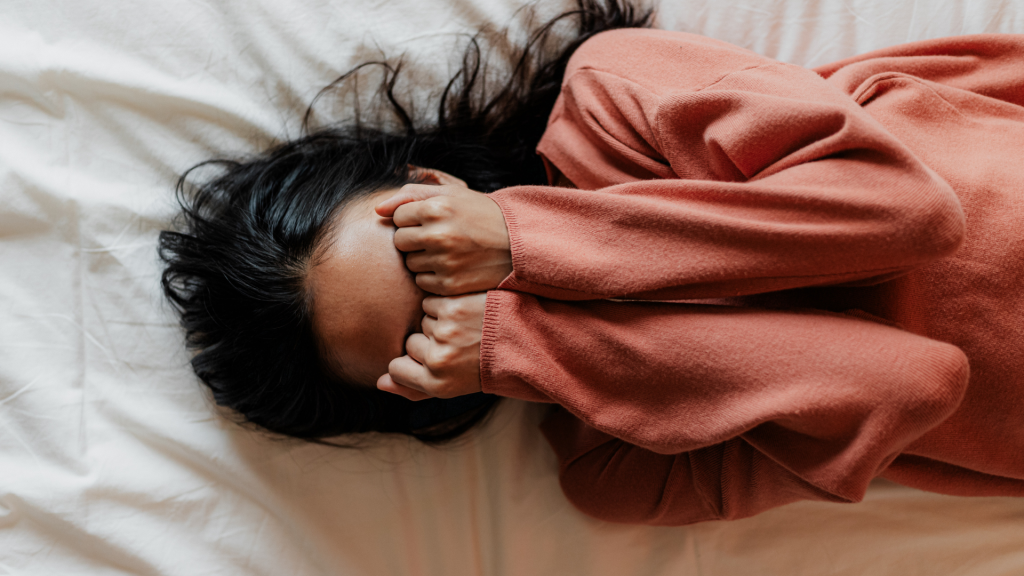Trusted counselling for anxiety disorder support by licensed therapists
Checking Out Various Techniques in Therapy for Anxiousness Disorder for Lasting Adjustment
When taking on anxiety problems, it's crucial to explore a variety of counseling techniques. Each method provides unique insights and tools to aid you handle your symptoms efficiently. You might locate that integrating methods can produce the finest results. Comprehending the nuances of these strategies is essential to fostering enduring adjustment. What happens if the right mix could launch a brand-new degree of psychological health for you?
Understanding Anxiousness Conditions: A Quick Summary
Anxiousness disorders, which affect millions of people worldwide, can substantially impact day-to-day live. You could experience frustrating feelings of anxiety or stress that appear irrepressible. These sensations can result in physical signs like an auto racing heart, sweating, and even dizziness. Usual kinds of stress and anxiety conditions consist of generalised anxiousness disorder, panic attack, and social anxiety condition. Each has one-of-a-kind indications, but they all share a propensity to interrupt your regular and relationships.Understanding the source of your anxiety is essential. It could stem from genetics, brain chemistry, or life experiences. Recognizing your triggers can help you handle your feedbacks better. It's important to bear in mind that you're not the only one in this struggle. Many individuals face comparable obstacles, and seeking aid is a strong action toward feeling better. By discovering regarding anxiety problems, you're currently on the course to understanding and managing your condition much more effectively.
Cognitive-Behavioral Therapy: Challenging Adverse Idea Patterns

Determining Negative Thought Triggers
When you come across minutes of distress, acknowledging the particular triggers behind your unfavorable ideas can be crucial in taking care of stress and anxiety. Start by taking notice of situations that provoke feelings of worry or anxiety. Is it a crowded area, a future target date, or a discussion with specific individuals? Jot down these circumstances in a journal. This will certainly help you identify patterns in your thinking. Notification physical sensations that accompany your adverse thoughts, like an auto racing heart or rigidity in your upper body. By determining these triggers, you acquire insight into what's fueling your stress and anxiety. Comprehending these links is the initial step in testing those ideas and eventually restoring control over your psychological actions.

Changing Thoughts With Positives
Testing negative idea patterns is an important step in transforming your frame of mind and reducing anxiousness. You might commonly discover yourself trapped in cycles of insecurity or catastrophic reasoning. Instead of allowing these ideas determine your feelings, technique replacing them with realistic choices or positive affirmations. As an example, when you believe, "I can not manage this," move it to, "I can manage obstacles one action each time (Counseling services for anxiety)." This straightforward modification can considerably affect your psychological state. Routinely identifying and countering these adverse thoughts assists create a much healthier internal dialogue. Remember, it takes time and effort, but consistently practicing this method can cause lasting change, encouraging you to deal with anxiety with restored confidence and strength
Structure Coping Methods With Each Other
Changing unfavorable ideas is just the start of taking care of stress and anxiety effectively. To create long-term adjustment, you need to build coping techniques that equip you. Cognitive-Behavioral Treatment (CBT) helps you recognize and challenge those unhelpful thought patterns. With each other, you and your counselor can explore exactly how these thoughts impact your feelings and behaviors.Start by creating functional strategies, like journaling or mindfulness workouts, that allow you to challenge stress and anxiety head-on. When you encounter your anxieties slowly, you'll discover to respond in different ways.

Mindfulness and Acceptance-Based Approaches: Growing Present-Moment Awareness
As you browse the complexities of anxiety, integrating mindfulness and acceptance-based approaches can significantly enhance your ability to cultivate present-moment awareness. By focusing on the present moment, you'll discover that you can observe your thoughts and feelings without judgment. This method aids you recognize your anxiety without feeling overwhelmed by it.Engaging in mindfulness exercises, such as deep breathing, body scans, or directed reflections, allows you to ground on your own in your existing experience. Acceptance-based methods encourage you to embrace your feelings as opposed to fight versus them. When you accept your feelings, they lose their power over you.Incorporating these practices into your day-to-day routine can change exactly how you reply to anxiety. You'll develop durability and discover to navigate stressful situations with higher simplicity. Inevitably, cultivating present-moment understanding lays the foundation for long-term adjustment, empowering you to lead a more satisfying life.
Exposure Treatment: Facing Worries Gradually
Exposure therapy assists you challenge your fears in a gradual means, making it much less frustrating. You'll discover strategies to encounter anxiety-provoking situations action by step, while likewise developing coping techniques to handle your responses. This strategy empowers you to take control and decrease anxiety in time.
Progressive Exposure Techniques
When dealing with anxiousness, progressively facing your concerns can be a powerful means to gain back control. This technique, called gradual direct exposure, includes gradually exposing yourself to the scenarios or items that trigger your anxiousness. Beginning with less intimidating circumstances and progressively function your way as much as even more challenging ones. For circumstances, if you hesitate of public talking, you could start by speaking in front of a mirror, then progress to sharing ideas with a pal, and ultimately resolve a little group. Each step helps desensitize you to the fear, building your confidence with time. Bear in mind, it's important to rate on your own and commemorate tiny success as you move through this process, reinforcing your ability to take care of get more info stress and anxiety efficiently.
Building Coping Approaches
Building reliable coping strategies is necessary for taking care of anxiety, particularly as you challenge your fears progressively. One effective technique is direct exposure therapy, where you start by encountering your concerns in a regulated manner. Begin with much less daunting situations and slowly work your method up to more challenging circumstances. This gradual exposure assists desensitize you to stress and anxiety activates, making them less overwhelming.Incorporate leisure techniques, such as deep breathing or mindfulness, to relax your mind throughout direct exposure. Track your progress, celebrating small success along the road to enhance your confidence. Remember, it's fine to take your time; the goal isn't excellence but steady renovation. By building these techniques, you'll equip yourself to navigate anxiety and accept life extra totally.
Psychodynamic Treatment: Discovering Source of Anxiousness
Psychodynamic treatment explores the unconscious mind, disclosing the origin of your stress and anxiety - Counseling services for anxiety. By examining your ideas, feelings, and past experiences, this approach aids you reveal underlying conflicts and unsettled concerns that might add to your current stress and anxiety. You'll collaborate with a therapist to examine childhood years experiences, connections, and emotional patterns that form your responses today.As you obtain insight right into these deeper layers of your mind, you'll begin to identify exactly how previous occasions influence your present habits. This understanding can bring about catharsis, allowing you to refine emotions you might have suppressed.Through the therapeutic connection, you can also identify defense systems that might have developed gradually, supplying a clearer course to alter. Eventually, psychodynamic treatment outfits you with the tools to resolve your anxiousness at its core, advertising long lasting improvement in your emotional health
All Natural and integrative Techniques: Incorporating Strategies for Greater Effectiveness
Incorporating various healing methods can boost your trip toward taking care of anxiety better. By incorporating aspects from cognitive-behavioral treatment, mindfulness practices, and all natural methods, you can create a personalized technique that addresses your unique demands. You might make use of cognitive-behavioral techniques to challenge unfavorable thought patterns while integrating mindfulness workouts to ground on your own in the present moment.Additionally, discovering all natural practices such as yoga exercise or reflection can advertise leisure and minimize stress and anxiety signs and symptoms. This mix allows you to develop better self-awareness and resilience.Experimenting with these varied methods can help you find what resonates most with you. Remember, it's about finding a harmony that works, instead than staying with a solitary technique. This integrative strategy not only supplies immediate alleviation yet additionally cultivates lasting abilities for managing anxiousness, equipping you to recover control over your life.
The Role of Assistance Equipments: Building Strength Via Link
While it may seem that taking care of anxiousness is a solitary journey, having a strong support group can play a vital role in your resilience. Bordering on your own with understanding buddies, family, or assistance teams creates a safe room where you can openly share your feelings and experiences. You remind on your own that you're not alone in this struggle.These connections use motivation and can offer useful coping strategies that have actually functioned for others when you attach with others. It's likewise a chance to obtain point of view; good friends can aid you see scenarios in a different way, lowering feelings of isolation.Moreover, psychological support fosters a feeling of belonging, which can greatly ease anxiety signs and symptoms. By leaning on your support group, you can construct resilience and take on obstacles better. Remember, connecting for help signifies stamina, and it can make all the difference in your journey toward taking care of anxiousness.
Frequently Asked Concerns
What Are the Typical Signs of Anxiousness Problems?
You might experience restlessness, exhaustion, trouble concentrating, irritability, muscular tissue stress, and sleep disruptions. Physical symptoms can include quick heartbeat, sweating, and trembling. Recognizing these indicators early can aid you look for suitable support and therapy.

For How Long Does Therapy Usually Last for Anxiety Disorders?
Therapy for stress and anxiety disorders normally lasts anywhere from a few weeks to several months. It actually relies on your specific needs, progress, and the strategies your therapist uses to help you handle your stress and anxiety successfully.
Can Drug Be Used Together With Treatment for Stress and anxiety?
Yes, drug can definitely be utilized together with therapy for stress and anxiety. Incorporating both methods commonly boosts treatment performance, aiding you handle signs and symptoms while checking out underlying problems with therapy. Constantly consult your doctor for customized recommendations.
Are There Self-Help Approaches for Handling Anxiety?
Yes, there are numerous self-help techniques for handling anxiety. You can practice mindfulness, take part in regular workout, preserve a well balanced diet, establish a routine, and use deep breathing methods to assist reduce stress and anxiety signs and symptoms effectively.
How Do I Know if I Need Specialist Assistance for Stress And Anxiety?
You must take into consideration looking for specialist help for anxiety if it interrupts every day life, triggers significant distress, or if self-help approaches aren't working. Trust your reactions; getting to out can result in much better coping skills and assistance. Usual kinds of anxiousness problems consist of generalised anxiousness problem, panic condition, and social anxiety condition. When you experience moments of distress, identifying the specific triggers behind your unfavorable thoughts can be important in taking care of stress and anxiety. Replacing unfavorable ideas is only the start of managing anxiousness properly. By examining your ideas, feelings, and past experiences, this technique aids you reveal underlying conflicts and unsolved problems that may contribute to your existing anxiety. It's additionally a chance to acquire viewpoint; friends can assist you see scenarios differently, minimizing feelings of isolation (Counseling services for anxiety).Moreover, psychological support fosters a sense of belonging, which can greatly alleviate stress and anxiety symptoms